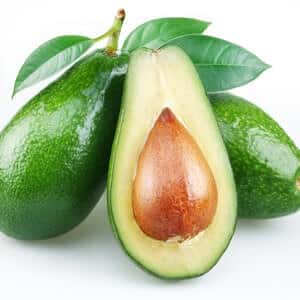
Don’t be afraid of fat! That’s the message from a study that scrutinized the links between saturated fat, polyunsaturated fat, monounsaturated fat and carbohydrate consumption and the chance of diabetes.
How Dietary Fat Affects the Chance of Diabetes:
The researchers analyzed more than 100 trials with 4,220 participants. When study subjects replaced 5 percent of the calories from carbs with sat fat calories, their fasting blood sugar did not change. Their fasting insulin was lower, however.
Replacing carb calories with monounsaturated fat, such as from olive oil or avocado, though, lowered HbA1c, post-meal insulin levels and insulin resistance. Researchers use HbA1c, or glycated hemoglobin, as a longer-term measure of blood sugar control.
People who got calories from polyunsaturated fats instead of carbs also lowered their HbA1c and fasting insulin. Polyunsaturated fats found in vegetable oils improved the ability of the pancreas to secrete insulin. Inadequate insulin secretion can be a problem in type 2 diabetes. So is insulin resistance.
Advice from the Study:
The authors suggest that people might reduce their chance of diabetes by adding more vegetable oils, nuts, fish and avocados to their diets. They would also benefit if they ate less meat, refined grains, starches and sugars.
PLOS Medicine, online July 19, 2016
CC0 from https://pixabay.com/en/avocado-fruit-food-fresh-avocados-356122/

